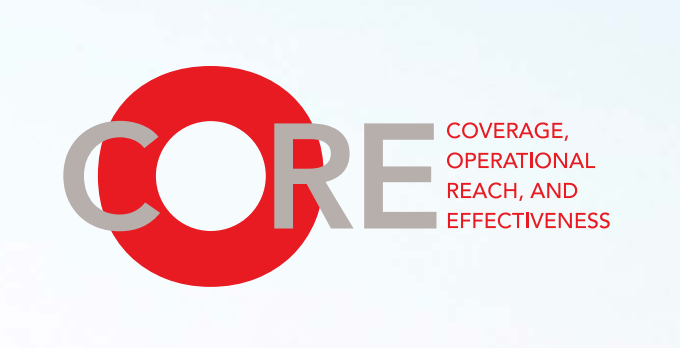The Global Score Report highlights the national and international entities identified in the survey and data findings as especially effective at reaching people in hard-to-reach areas, and some emerging practices and new models that hold promise. These include peer-to-peer learning on negotiated access and community-led, locally-based collaborations between a wide range of actors in and outside the humanitarian sectors. This year’s global report draws on research from Afghanistan, Central African Republic, and Northeast Nigeria.
Humanitarian Outcomes’ programme on Coverage, Operational Reach, and Effectiveness (CORE) is a data-intensive study that probes the size and scope of global humanitarian response, with a particular focus on conflict-affected countries that pose challenges to humanitarian access.
CORE’s first pillar is the Global Database of Humanitarian Organisations (GDHO), which tracks information on the programme expenditure, staff size, countries of operation and other key information on humanitarian providers worldwide. This data, combined with our methodology for calculating rigorous estimates, is helping to fill a critical gap in the empirical evidence base in the humanitarian sector.
The second pillar is the Survey on Coverage, Operational Reach, and Effectiveness (SCORE). SCORE focuses on crisis contexts that are difficult to access and conducts remote surveys of people living there to learn what they see as the biggest constraints to their accessing vital relief aid, and which humanitarian actors are the most operationally present and effective. The SCORE reports feature these high-performing actors and highlight lessons and good practices in hard-to-access settings.
CORE receives ongoing funding support from USAID’s Bureau for Humanitarian Assistance (BHA). It builds upon findings from the Secure Access in Volatile Environments (SAVE) programme, 2013-2016, which was funded by the UK government’s Department for International Development (now the Foreign, Commonwealth and Development Office).
